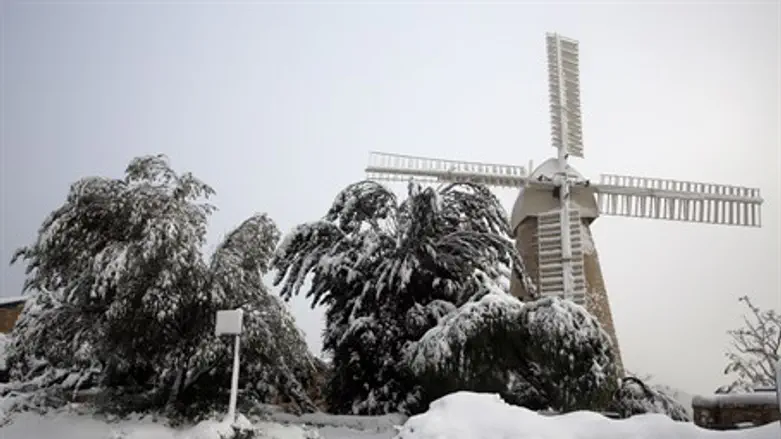
With snow falling heavily in many parts of Israel late Thursday night, Prof. Chaim Kutiel says that Israel's current winter is chiefly characterized by its unusually strong extremes.
"We're in a type of meteorological roller-coaster," says Kutiel, an expert in climate and weather change from the Geography and Environmental Studies Faculty of Haifa University. The winter has had "very rainy seasons, as in November and January," he reviews, "followed by hot and dry periods, and then again rain and cold. This pattern is unusual, and has not yet ended. It could continue in March and even possibly in April."
Another aspect of Israel's roller-coaster weather could be the instances of snow predictions over the past few weeks that did not pan out. Dr. Barry Lynn, C.E.O of Weather It Is Ltd., wrote earlier this week in predicting the current storm: "OK, here we go again, and this time, there is a serious winter snow storm to talk about. By serious, I mean more than any of the snow threats we have received this winter."
A prediction a week earlier, however, by a prominent meteorologist, stated that certain areas in central Israel could receive "10-25 centimeters of snow" – when in fact it merely hailed for a few minutes.
The misguided snow "threats" caused many Israelis to change their plans, and several municipalities made arrangements for road- and school-closings.
Despite the false alarms, the predictions for the current storm were by and large taken seriously by the same municipalities – and this time, they appear to have been justified.
Another "topsy-turvy" aspect of Israeli weather was the announced retirement last month of Dr. Henia Berkovitz, who has served since 2002 as Director of Israel's Meteorological Service. The position entails overseeing 80 workers, setting the Service's goals and policy, and the like. Berkovitz's resignation takes effect in three months' time, and the Ministry of Transportation - under the auspices of which the Meteorological Service functions – has begun the process of finding her replacement.
The level of the Kinneret (Sea of Galilee) rose two centimeters yesterday, and currently stands at 212.33 meters below sea level. It has risen a modest half-meter over the past three months, and stands only 67 centimeters above the dangerous red line. If it gains another 3.5 meters, the city of Tiberias could be flooded; water experts are hoping it will gain at least a quarter of that amount by the time the current rainy season ends.